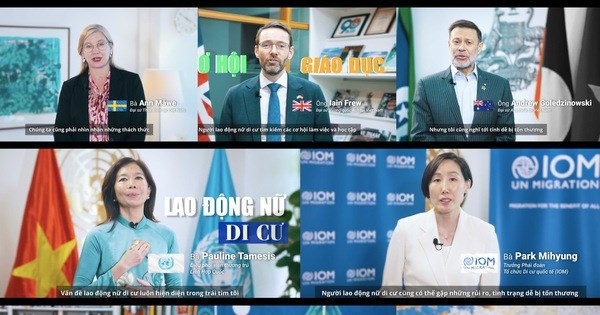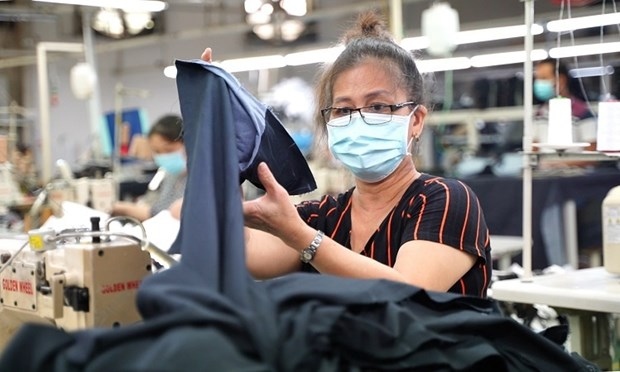Int’l organisation’s representatives join voices for empowerment of migrant women
On the occasion of the International Women’s Day 2023, the UN Resident Coordinator, the Chief of Mission of the International Organisation for Migration (IOM) and the Ambassadors of Australia, Japan, Republic of Korea, Sweden, UK and the US to Vietnam have joined voices to celebrate the strength of women and girls on the move.

They also put forth recommendations to bridge the digital gender divide in migration and strengthen female migrants' resilience and competitiveness in the digital world.
In their messages conveyed via an online video, they affirmed that migration is an indispensable part of Vietnam's general development process, which is shown in the number of Vietnamese citizens who migrate for work, study, marriage, family reunion and other purposes, both inside and outside the country.
Migrant workers are a source of sustainable contributions to Vietnam's socio-economic development, they noted.
A survey by the Vietnam Women’s Union showed that Vietnamese women make up 55.5% of the country's migrant population. In 2020, there were 3.4 million Vietnamese who migrated (3.3% of total population), among whom 1.71 million were women (50.3% of total migrants).
While migration has provided many women with opportunities to improve their lives and families, Vietnamese migrant women at the same time face challenges especially in the face of the Fourth Industrial Revolution, it said.

With nearly 80% of working-age women in Vietnam being either low-skilled or unskilled, migrant women workers make up a sizable proportion of the labour force engaged in lower-skilled economic sectors or labour-intensive positions, which account for nearly 74% of all jobs in Vietnam.
As the Fourth Industrial Revolution is rolled out, automation and technological advancements are forecast to cause a rapid decline in demand for unskilled and low-skilled labour. Up to 86% of workers in Vietnam's textile and footwear industries are at risk of losing their job within the next 15 years. In this context, migrant women workers are among the most affected by the Fourth Industrial Revolution as they account for a large proportion of the low-skilled labour force.
In another aspect, women particularly migrant women looking for jobs have faced growing risks on online spaces. This is because on the one hand, the online platform has become an increasingly popular channel to search for job opportunities. On the other hand, technology enables traffickers to easily recruit victims. Women, especially young women and girls with unskilled or low-skilled, have been targeted by smugglers and traffickers whose criminal operations are transnational.
The Ambassadors of countries and representatives from international organisations highly valued efforts taken by the Vietnamese Government, and pledged to accompany Vietnamese authorised agencies and international partners in protecting and empowering Vietnamese migrant women in the digital context.
